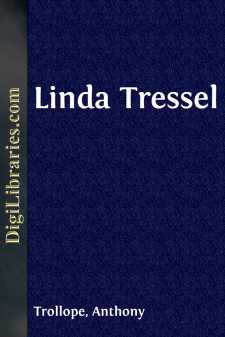Categories
- Antiques & Collectibles 13
- Architecture 36
- Art 48
- Bibles 22
- Biography & Autobiography 816
- Body, Mind & Spirit 145
- Business & Economics 28
- Children's Books 17
- Children's Fiction 14
- Computers 4
- Cooking 94
- Crafts & Hobbies 4
- Drama 346
- Education 58
- Family & Relationships 59
- Fiction 11834
- Foreign Language Study 3
- Games 19
- Gardening 17
- Health & Fitness 34
- History 1378
- House & Home 1
- Humor 147
- Juvenile Fiction 1873
- Juvenile Nonfiction 202
- Language Arts & Disciplines 89
- Law 16
- Literary Collections 686
- Literary Criticism 179
- Mathematics 13
- Medical 41
- Music 40
- Nature 179
- Non-Classifiable 1768
- Performing Arts 7
- Periodicals 1453
- Philosophy 66
- Photography 2
- Poetry 897
- Political Science 203
- Psychology 45
- Reference 154
- Religion 516
- Science 126
- Self-Help 85
- Social Science 82
- Sports & Recreation 34
- Study Aids 3
- Technology & Engineering 59
- Transportation 23
- Travel 463
- True Crime 29
Our website is made possible by displaying online advertisements to our visitors.
Please consider supporting us by disabling your ad blocker.
Cousin Henry
by: Anthony Trollope
Description:
Excerpt
Uncle Indefer
"I have a conscience, my dear, on this matter," said an old gentleman to a young lady, as the two were sitting in the breakfast parlour of a country house which looked down from the cliffs over the sea on the coast of Carmarthenshire.
"And so have I, Uncle Indefer; and as my conscience is backed by my inclination, whereas yours is not—"
"You think that I shall give way?"
"I did not mean that."
"What then?"
"If I could only make you understand how very strong is my inclination, or disinclination—how impossible to be conquered, then—"
"What next?"
"Then you would know that I could never give way, as you call it, and you would go to work with your own conscience to see whether it be imperative with you or not. You may be sure of this,—I shall never say a word to you in opposition to your conscience. If there be a word to be spoken it must come from yourself."
There was a long pause in the conversation, a silence for an hour, during which the girl went in and out of the room and settled herself down at her work. Then the old man went back abruptly to the subject they had discussed. "I shall obey my conscience."
"You ought to do so, Uncle Indefer. What should a man obey but his conscience?"
"Though it will break my heart."
"No; no, no!"
"And will ruin you."
"That is a flea's bite. I can brave my ruin easily, but not your broken heart."
"Why should there be either, Isabel?"
"Nay, sir; have you not said but now, because of our consciences? Not to save your heart from breaking,—though I think your heart is dearer to me than anything else in the world,—could I marry my cousin Henry. We must die together, both of us, you and I, or live broken-hearted, or what not, sooner than that. Would I not do anything possible at your bidding?"
"I used to think so."
"But it is impossible for a young woman with a respect for herself such as I have to submit herself to a man that she loathes. Do as your conscience bids you with the old house. Shall I be less tender to you while you live because I shall have to leave the place when you are dead? Shall I accuse you of injustice or unkindness in my heart? Never! All that is only an outside circumstance to me, comparatively of little moment. But to be the wife of a man I despise!" Then she got up and left the room.
A month passed by before the old man returned to the subject, which he did seated in the same room, at the same hour of the day,—at about four o'clock, when the dinner things had been removed.
"Isabel," he said, "I cannot help myself."
"As to what, Uncle Indefer?" She knew very well what was the matter in which, as he said, he could not help himself. Had there been anything in which his age had wanted assistance from her youth there would have been no hesitation between them; no daughter was ever more tender; no father was ever more trusting. But on this subject it was necessary that he should speak more plainly before she could reply to him.
"As to your cousin and the property."
"Then in God's name do not trouble yourself further in looking for help where there is none to be had....












